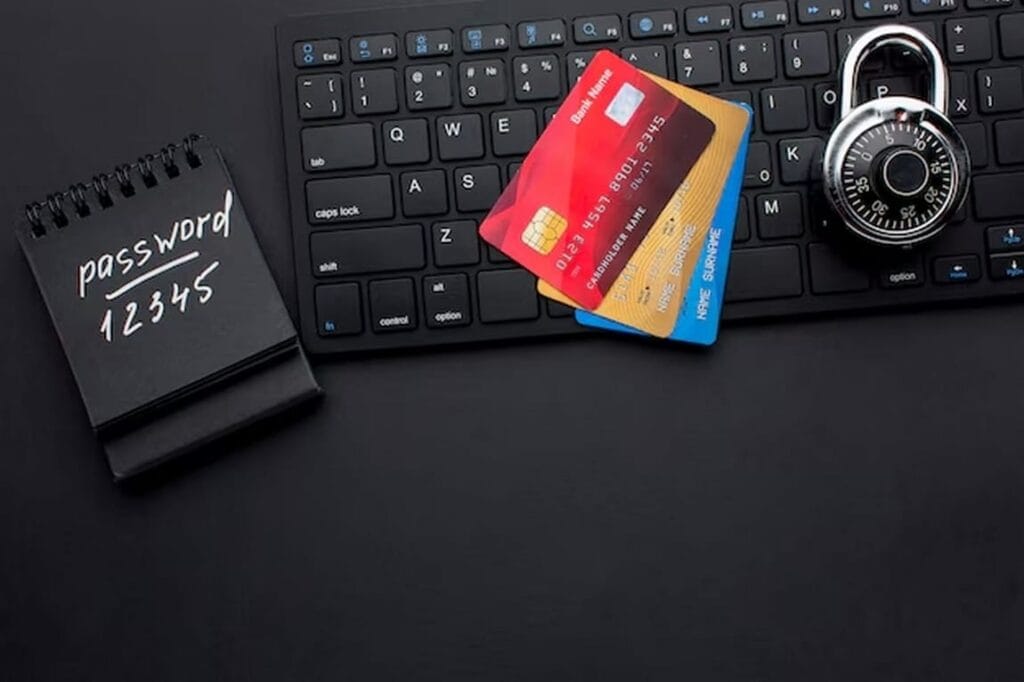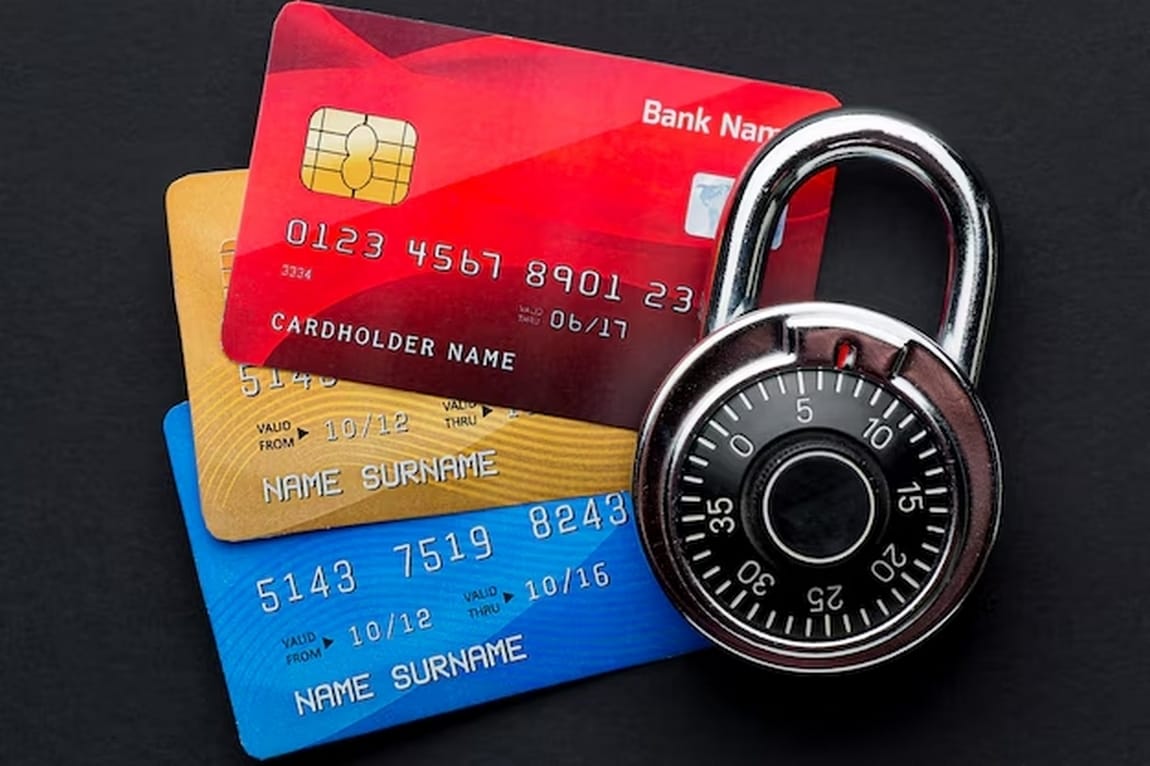Credit scores. The magical numbers that open the gates to financial freedom or slam them shut faster than you can say “denied.” If you’re in the latter camp, fret not. Secured credit cards are here to save the day! Let’s embark on a journey to demystify these enigmatic financial tools.
The Mystery of Secured Credit Cards Unveiled
Imagine a world where your credit score gets a makeover with just a small deposit. That’s the essence of secured credit cards. They are the secret agents in the credit world, working undercover to boost your score without the need for a perfect credit history. Intrigued yet? Good, let’s dig deeper.

Why Should You Care About Secured Credit Cards?
Why indeed? Well, unless you plan to barter goats for goods and services, a good credit score is crucial. Whether you’re buying a house, a car, or even getting a cell phone plan, your credit score is a key player. Secured credit cards offer a gateway to build or rebuild your credit score, making them essential for anyone looking to improve their financial health.
The Basics: What is a Secured Credit Card?
A secured credit card is akin to a traditional credit card, but with a twist. You provide a cash deposit upfront, which serves as collateral and determines your credit limit. Think of it as a safety net for the issuer, ensuring they won’t lose money if you decide to go on a wild spending spree and forget to pay your bill.
How a Secured Credit Card Differs from a Regular Credit Card
Regular credit cards are like that friend who lets you borrow their stuff without asking for collateral. Secured credit cards, on the other hand, are the cautious type. They require a deposit. This makes them accessible to those with less-than-stellar credit, as the risk to the issuer is mitigated by your deposit.
The Nitty-Gritty: How Does a Secured Credit Card Work?
It’s simple. You apply for a secured credit card, deposit an amount (typically starting at $200), and voila! Your credit limit is usually equal to your deposit. Use the card responsibly, pay your bills on time, and over time, you’ll see your credit score climb. It’s like training wheels for your credit score – safe, secure, and effective.
The Deposit: Your Ticket to Credit Building
The Security Deposit Explained
The security deposit is your foot in the door. It’s the upfront money you put down, which acts as collateral for the card issuer. If you fail to pay your credit card bill, they have your deposit to fall back on. Simple, yet effective.
How Much Should You Deposit?
The amount you deposit varies, but starting at $200 is common. The more you deposit, the higher your credit limit. However, don’t go emptying your savings. Start with an amount you’re comfortable with and can afford to set aside.
Is Your Deposit Safe?
Yes, your deposit is safe and sound. Think of it as a refundable security deposit for an apartment. If you close your account in good standing, you’ll get your deposit back. It’s not locked away in a dragon-guarded vault; it’s just securing your credit line.
Credit Limits and How They’re Determined
From Deposit to Credit Limit: The Calculation
Your credit limit is typically equal to your deposit. So, if you put down $500, you have a $500 credit limit. Some cards may offer a higher limit than your deposit, but that’s the exception, not the rule.
Can You Increase Your Credit Limit?
Absolutely! By increasing your deposit, you can often increase your credit limit. Alternatively, some issuers will up your limit after you’ve demonstrated responsible use over time. It’s like getting a raise for being a diligent worker.
The Application Process: Getting Your Hands on One
Eligibility Criteria: Who Can Get a Secured Credit Card?
Almost anyone can get a secured credit card, even those with bad or no credit. The main requirement is being able to provide the deposit. Beyond that, the eligibility criteria are typically less stringent than for regular credit cards.
The Application Steps: From Start to Finish
Apply online or in-person, provide your personal information, and choose your deposit amount. The process is straightforward and typically faster than a standard credit card application. Before you know it, you’ll have your shiny new secured credit card in hand.
Common Pitfalls to Avoid During Application
Beware of hidden fees and high-interest rates. Read the fine print! Ensure the card reports to all three major credit bureaus, as this is crucial for building your credit. Don’t get lured by fancy rewards if the fees outweigh the benefits.
Using Your Secured Credit Card: Best Practices
Smart Spending: Staying Within Your Limit
Treat your secured credit card like a debit card. Spend only what you can afford to pay off each month. Avoid maxing out your limit, as this can negatively impact your credit score. Moderation is key.
The Importance of Timely Payments
Timely payments are the golden rule. Missing a payment can defeat the purpose of having a secured card. Set up automatic payments or reminders to ensure you never miss a due date. Your future self will thank you.
Monitoring Your Credit Usage
Keep an eye on your credit utilization ratio – the amount of your credit limit you’re using. Aim to keep it below 30%. High utilization can hurt your credit score, so monitor your spending like a hawk.
Building Credit with a Secured Credit Card
How Secured Cards Help Improve Your Credit Score
By using your secured card responsibly, you’re sending positive signals to credit bureaus. Regular, on-time payments and low credit utilization contribute to a healthier credit score. It’s a slow and steady race, but the results are worth it.
The Timeline: When You’ll See Results
Patience is a virtue here. You might see improvements in a few months, but significant changes typically take six months to a year. Consistency is crucial. Keep at it, and your credit score will gradually reflect your efforts.
Transitioning to an Unsecured Credit Card
After demonstrating responsible use, you might be eligible to upgrade to an unsecured credit card. This often comes with better terms and higher limits. It’s like graduating from credit school – a milestone worth celebrating.
Fees and Interest Rates: What to Watch Out For
Common Fees Associated with Secured Credit Cards
Expect annual fees, and possibly application fees. Some cards may also have monthly maintenance fees. Choose a card with minimal fees to maximize your benefits. Remember, not all secured cards are created equal.
Interest Rates: Understanding the Costs
Interest rates on secured cards can be high. Aim to pay off your balance in full each month to avoid interest charges. If you carry a balance, the interest can quickly add up, turning your credit-building tool into a financial burden.
The Rewards and Benefits: Yes, They Exist!
Cash Back and Points: Perks of Some Secured Cards
Believe it or not, some secured cards offer rewards. Cash back, points, and even travel perks can be yours. While not as generous as unsecured cards, these rewards can still add value.
Additional Benefits You Might Not Expect
Some secured cards come with perks like rental car insurance, purchase protection, and extended warranties. These benefits can be a pleasant surprise, adding extra value to your card.
The Risks and Downsides: No Rose-Tinted Glasses Here
Potential Drawbacks of Secured Credit Cards
High fees, interest rates, and the need for an upfront deposit are the main drawbacks. Additionally, if you misuse the card, it can harm your credit rather than help it. Weigh the pros and cons before diving in.
How to Mitigate These Risks
Choose a card with low fees, pay your balance in full each month, and use the card responsibly. Educate yourself on the terms and conditions. By staying informed and disciplined, you can avoid common pitfalls.
Comparing Secured Credit Cards: Finding the Right Fit
Key Features to Look For
Look for cards with low fees, favorable interest rates, and rewards if possible. Ensure they report to all three credit bureaus. Compare features to find the card that best suits your needs.
Comparing Popular Secured Credit Cards on the Market
Research and compare top secured credit cards. Read reviews, check fees, and evaluate benefits. Make an informed choice based on your financial goals and circumstances.
Alternatives to Secured Credit Cards: Exploring Other Options
Credit Builder Loans
Credit builder loans are another option to build credit. You borrow a small amount, which is held in a savings account. As you make payments, your credit score improves, and you eventually get access to the loan amount.
Becoming an Authorized User on Someone Else’s Card
Being an authorized user on a friend or family member’s credit card can also help build your credit. Ensure the primary cardholder uses the card responsibly, as their behavior will affect your credit.
Common Myths and Misconceptions
Debunking Myths About Secured Credit Cards
Secured cards are often misunderstood. They’re not just for people with bad credit; they’re a valuable tool for anyone looking to build or rebuild credit. They’re not a scam or a quick fix, but a legitimate financial instrument.
Clearing Up Common Misunderstandings
One common misunderstanding is that secured cards don’t affect your credit score. In reality, they can significantly improve it when used correctly. Another is that the deposit is a fee; it’s not – it’s collateral.
Real-Life Success Stories: How Others Boosted Their Credit
Inspiring Examples of Credit Building with Secured Cards
John started with a secured card after a financial setback. Within a year, his score improved by 100 points. Jane used her secured card wisely, and now
she has an unsecured card with great rewards. These stories highlight the potential of secured cards.
Lessons Learned from Real Users
Consistency, discipline, and education are key. Real users emphasize the importance of paying on time and keeping utilization low. Their experiences offer valuable insights for anyone looking to follow in their footsteps.
Final Thoughts: Is a Secured Credit Card Right for You?
Assessing Your Financial Situation
Evaluate your current financial health and credit goals. A secured card can be a powerful tool if you’re looking to build or rebuild credit. Ensure it aligns with your broader financial strategy.
Making an Informed Decision
Research, compare, and understand the terms. Making an informed decision ensures you get the most out of your secured card. It’s a stepping stone to better credit, but only if used wisely.
BOTTOM LINE
Your Next Steps: Taking Action Towards Better Credit
If you’re ready to improve your credit, consider a secured card. Apply, deposit, and use it responsibly. Monitor your progress and stay committed. Your future self will thank you for the effort you put in today. Here’s to a brighter financial future!
Frequently Asked Questions (FAQs)
Can you close a secured credit card?
Yes, you can close a secured credit card. Simply pay off any outstanding balance, and then contact your card issuer to request account closure. Your security deposit will be refunded, provided your account is in good standing.
Is a secured credit card like a debit card?
No, a secured credit card is not like a debit card. While a debit card draws money directly from your bank account, a secured credit card allows you to borrow against a credit limit that is secured by a cash deposit.
How many secured cards can I have?
You can have multiple secured credit cards. However, it’s important to manage them responsibly and ensure you can handle the payments for each card to avoid negatively impacting your credit score.
How often should I use my secured credit card?
Use your secured credit card regularly, but responsibly. Aim to make small purchases that you can pay off each month. This helps demonstrate consistent usage and timely payments, which are crucial for building your credit score.
How long does it take to open a secured credit card?
Opening a secured credit card typically takes a few weeks. The application process itself is quick, but the time for the card to be issued and mailed can vary depending on the card issuer.
How do I increase my secured credit card limit?
To increase your secured credit card limit, you can usually add more to your security deposit. Some card issuers may also offer an increase based on your responsible usage over time.
How does a $200 secured credit card work?
A $200 secured credit card works by requiring a $200 deposit, which becomes your credit limit. You can spend up to $200, and you must make payments on the balance to keep using the card and build your credit.
Can I use a secured credit card to rent a car?
Yes, you can use a secured credit card to rent a car, but some rental agencies may have additional requirements or restrictions. It’s advisable to check with the rental company beforehand.
Can I get a $10000 secured credit card?
Getting a $10,000 secured credit card is possible if you can provide a $10,000 security deposit. However, such high limits are uncommon for secured cards and typically require substantial deposits.
What credit card has a 10000 limit?
Unsecured credit cards are more likely to offer a $10,000 limit, usually for individuals with excellent credit. High-limit secured cards are rare and generally require a large deposit.
Can everyone get a secured credit card?
Almost everyone can get a secured credit card, including those with bad or no credit, as long as they can provide the necessary security deposit. Approval criteria are generally less stringent than for unsecured cards.








